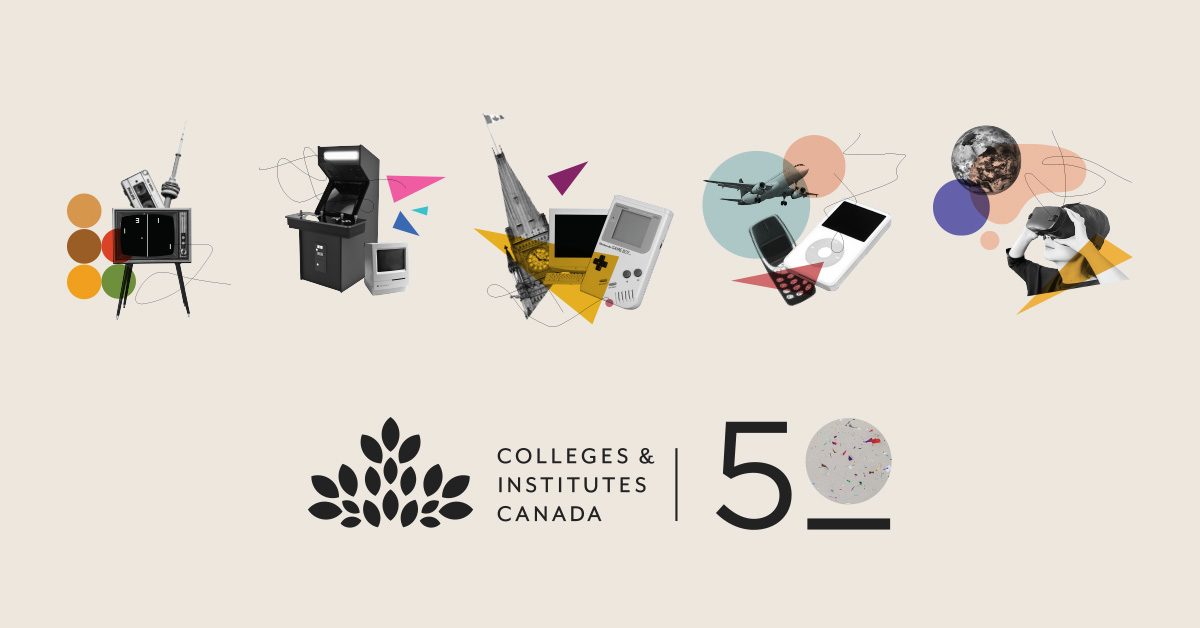By Gerry Brown, President and CEO of CICan (1998-2007)
As a college President one of the realities that you must keep foremost in your mind is that Colleges are “local”. What happens down the corridor from your office, what happens around the block from the college, and what happens in the community that you serve must constantly remain top of mind. Even what happens at the provincial and/or national levels needs to be translated locally. This means that federal policies and programs need to be viewed through similar lens. For me that has always been one of the key functions of CICan (fomerly ACCC) : to connect the “local’ priorities of colleges and institutes to the national agenda.
There was some attention to the national agenda in those early decades of ACCC but the lure of funding from international projects gradually steered the association to an increased attention on international. This drift was understandable at the time, and we need to acknowledge that these sources of funding did keep the association viable and active.
By the end of the 1990s, we were hearing growing pleas from member colleges that the association refocus its attention on the national agenda. One of my first tasks as new President of ACCC was to rapidly articulate a vision that saw a significant swing of ACCC’s activities towards the national agenda.
Advocacy at the college level is built upon some prior awareness of the role of that college within its community. Established partnerships with industry partners and community leaders meant that the local community had a reasonably good idea what the college was all about. And more importantly understood its value added to the community. So, as I began to translate that strategy to our efforts on the national agenda at the federal level…. well…… I hit a major obstacle and it can be best described as “Colleges and the federal agenda……you can’t be serious!!”
Everyone understood the role of universities to the national agenda but when it came to colleges there was an absolute lack of understanding. In all fairness one can understand that reaction. Senior politicians and public servants were all graduates from universities. They understood universities and could easily relate to them. The same was true for the structures that supported these politicians and senior bureaucrats. They were also graduates of universities. How can you convince these decision-makers of the important role of colleges if they don’t even have a clue who you are? The same can be said for our national media. Most journalists at that time were graduates of universities. When they wrote articles on postsecondary education there was an almost complete absence of any references to colleges and institutes.
As is often the case with complex issues, the answer often lies in simplicity. What we decided to do was to “tell our story” The college story is an amazing one. Our students overcome incredible social, economic, and parental pressures to opt for colleges. They have a dream and colleges have developed successful pathways to help student achieve that dream. Committed faculty working within innovative industry partners deliver relevant and meaningful programming. Furthermore, our increased attention to KPI’s at that time highlighted that the college story was an incredible Canadian success story. Not only were students graduating at an incredible rate, but the level of employment was off the charts. Even university students were beginning to flock to colleges and institutes with the hope that a college education coupled with their university education would help them fulfil their dreams.
We then began to match our college programming to the federal policies and programs and encouraged the federal government to join us in this dream. Every time we met with a Minister and/or senior bureaucrat we demonstrated where colleges and institutes could make a meaningful contribution. After all, colleges are at the forefront of social and workforce development. They truly touch all segments of Canadian society and are therefore well positioned to make an impact in just about every single federal government program and/or policy.
The more we spoke with the representatives from the federal political and public sector, the more they understood. They began to envision the role that colleges and institutes could play in helping them achieve their goal. Our story became their story and we began to see initiatives designed specifically for colleges and institutes in areas such as applied research, environment, SMEs, rural communities… and the lists goes on. More importantly, this work laid the groundwork for many of the advocacy successes that we continue to enjoy today.
The same can be said about our national media. They began to listen more attentively to “our story”. The Globe and Mail introduced annual supplements specifically on colleges as did Maclean’s magazine. They all had the same trust of stressing the success of college dream.
While our primary focus was the constant pressure on the federal government, there were three other important areas that we developed simultaneously to support our move towards the national agenda. The first was the development of an array of professional development opportunities to ensure that the colleges were well equipped to deliver. Within these workshops, colleges met with federal officials, learnt from each other and developed valuable networking connections that help sustain our development. We also focused on the leadership teams of our colleges and institutes with the goal of equipping them with the skills and tools to meet not only the challenges of their local environment but also to interface with the national agenda.
Secondly, we transformed the governance model of the association. Advocacy at the national level is not just something that happens in Ottawa. Canada is a collection of communities, and each community resides in the House of Commons. Every college has a critical role to play in supporting the association’s efforts on the national stage. If the national agenda was to remain at the forefront of the Association’s advocacy efforts, then it needed a stronger governance model that ensured colleges had a very real and direct role the decision-making process of the association. While always a challenging task to reconfigure an existing governance model, the recommendation to change the governance model was met with resounding approval, when submitted to members in 2005. Why?? Because we had succeeded in transforming the mindset of the association to the importance of the national agenda and the need for a new more effective governance model to build on that success.
Finally, we revisited our involvement in international education. Highlighting the success of a college education, we positioned ourselves to assist colleges and institutes in recruiting international students. We redesigned our international projects to reflect the critical role of colleges to the economic development of a nation. The hugely successful international EFE program grew out of the lessons learnt from our national agenda.
Space limitation means that I’ve left out a lot of interesting tidbits that make our story even more enriching. But hopefully you get the idea of what were the challenges that we faced and how we addressed them. The switch to the national agenda was a critical decision for the association and that continues to this day. The efforts to “tell our story“ is just as important now as it was then…and it’s an incredible story which every college and institution should be proud.
While many shared that dream, I would like to single out the contribution of Terry Anne Boyle who worked tirelessly on behalf of our efforts on the national agenda.





